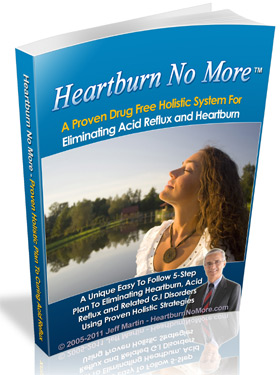As a parent, there's nothing more heart-wrenching than the sound of your baby crying. Trying to pinpoint the cause can be extremely frustrating and many parents long for the days when their children can just say, "I'm hungry" or "I'm uncomfortably wet." The fear is always that there may be something wrong with the baby that's difficult for parents to diagnose. Frequently spitting up milk, shying away from the breast and crying can be signs that something isn't quite right. More than half of all babies experience infant reflux during their first few months, but how do you know when it's a problem?
Babies spit up… a lot. This happens because the lower esophageal sphincter (the valve that closes the throat) isn't fully developed yet and the soft tissue allows for liquid to come back up just as easy as it went down. Generally, as the child ages this will be less of a problem, although it's possible that he or she may have infant reflux.
Aside from being kind of gross, infant reflux can be a sign of GERD (a severe version of reflux resulting in awful pain, vomiting and poor weight gain) or Pyloric Stenosis (a rare condition where a narrowed valve prevents stomach contents from emptying properly into the intestines). You should seek medical advice if your baby resists feeding but seems hungry, isn't gaining weight, has fewer wet diapers than normal and seems lethargic, spits up forcefully, spits up green or brown fluid, or spits up more than a few tablespoons at a time. If your baby sounds hoarse all the time, has diarrhea or difficulty breathing, then definitely ask your doctor about infant reflux.
While breastfeeding, try to keep your baby in a slightly upright position by holding, using pillows or a feeding product, such as the Pollywog Nursing Positioner. It's also possible you're simply feeding your baby too much at once. Try smaller feedings, which could reduce the incidence of regurgitation.
If you're bottle feeding, you may want to try a different bottle, such as Dr. Brown's Natural Flow Bottles, which are specially designed to reduce air bubbles that trigger burping, ear fluid and infant reflux. There are also other formulas that your baby might digest better. For babies with merely infant reflux and no milk allergies, Enfamil AR is designed for them. However, if the milk-based formula seems to upset your baby, soy-based, lactose-free or hypoallergenic formulas are available. In fact, approximately 25% of babies in the US are on soy-based formulas. Isomil and Prosobee are two popular soy-based formulas on the market. Hypoallergenic formulas include: Alimentum, Nutramigen, Pregestimil, Neocate and Elecare.
You may also want to reconsider breastfeeding as an option because it reduces the incidence of infant reflux. Dr. Laura Barmby wrote in New Beginnings magazine, "Breast fed babies seem to cope better with GERD than artificially fed babies. During breastfeeding, the motion of the baby's tongue triggers peristaltic waves along the gastrointestinal tract. Human milk digests more completely -- and almost twice as fast as formula. The less time the milk spends in the stomach, the less opportunity there is for it to back up into the esophagus."
In extreme cases, medication may be needed to treat your baby's severe infant reflux or GERD symptoms. Your doctor may recommend medication commonly prescribed to adults, but in much lower dosages. H2 blockers like Tagamet and Zantac or Proton Pump Inhibitors like Nexium and Prilosec are common recommendations. However, medications should be used as a last resort, since they could be linked to an increased incidence of intestinal and respiratory infections. Worst case scenario, some babies have undergone fundoplication surgery to tighten the muscle that allows food to flow back into the esophagus. Generally, surgery is only needed when GERD symptoms interfere with growth or breathing.
Subscribe to:
Post Comments (Atom)



No comments:
Post a Comment